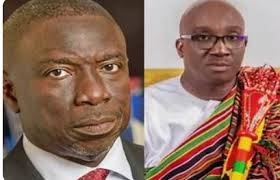Business
NLC demands immediate reversal of new pump price of petrol
The Nigeria Labour Congress (NLC) has called for the immediate reversal of the new price increase in the pump price of petrol across the country.
The Congress made the demand in a statement issued on Tuesday in Abuja by its President, Joe Ajaero, and made available to newsmen.
The Nigerian Petroleum Corporation Ltd. (NNPCL) on Tuesday morning, reportedly directed an increase in its pump price of between ₦568 – ₦617 per litre to ₦855 – ₦897 per litre, depending on the area.
Although, the company had denied issuing the directive, checks at NNPCL retail stations in Abuja reflected the new price of ₦897 per litre
Reacting to the development, Ajaero said the Congress felt a deep sense of betrayal by the increase in the pump price of petrol.
He recalled that one of the reasons for accepting ₦70,000 as national minimum wage was the understanding that the pump price of petrol would not be increased, even as they knew that ₦70,000 was not sufficient.
The labour leader recalled their meeting with President Bola Tinubu, where they were given the options of either ₦250,000 minimum wage and a rise of pump price between ₦1,500 and N2,000 or ₦70,000 minimum wage and retaining pump price of ₦568 – ₦617 per litre.
“We opted for the latter because we could not bring ourselves to accept further punishment on Nigerians.
“But here we are, barely one month after and with the government yet to commence payment of the new national minimum wage, confronted by a reality we cannot explain. It is both traumatic and nightmarish.
“Yet, when we told the government that its approach to resolving the fuel subsidy contradictions was patently faulty and would not last, its front-row cheerleaders sneered at us, saying we did not understand basic economics.
“But if truth be told, this act of betrayal is consistent,” he said.
Ajaero also recalled the assurances given to the Congress by the leadership of the National Assembly on the reversal of the 250% electricity tariff hike.
He said, instead of the promised reversal, the rate has since been jerked up further, putting more Nigerians and businesses in jeopardy.
In addition to the reversal of the increased price of petrol pump price and electricity tariff, the NLC called for the release of all those incarcerated or being prosecuted for participating or purportedly participated in the recent #Endbadgovernance protest.
Ajaero said the Congress also demanded a halt in the indiscriminate arrest and detention of citizens on trumped-up charges.
“The Congress demands a stop to the hijack of the duties of the Ministry of Labour and Employment.
“We also demand an end to policies that engender hunger and insecurity as well as a halt to the government’s culture of terror, fear and lying,” he said.
Ajaero said in the coming days, the appropriate organs of the Congress would be meeting to take appropriate decisions which would be made public.























